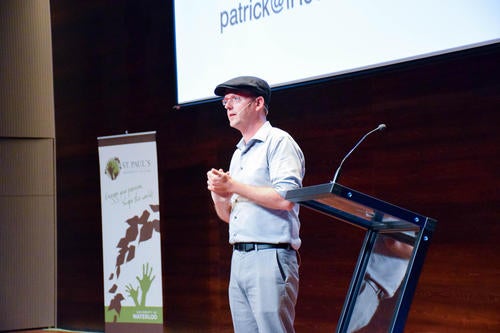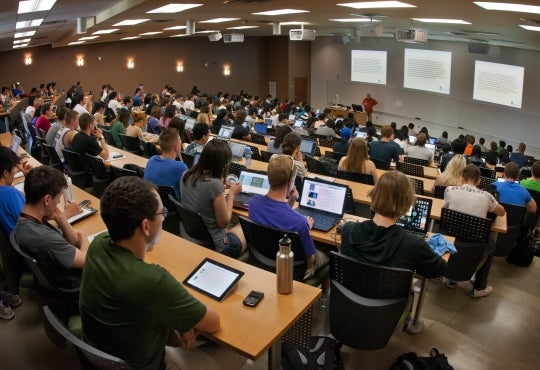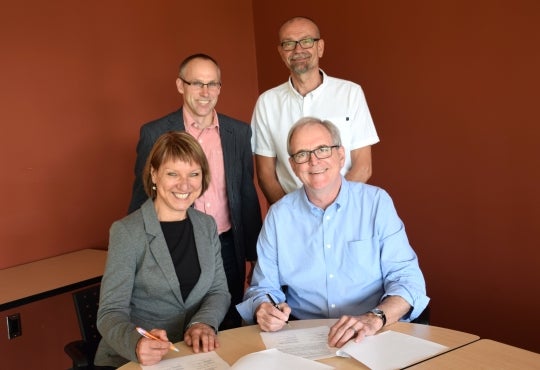Patrick Meier delivers 2017 Stanley Knowles Humanitarian Service Lecture

Robots can be and, in fact, are, used for good -- and as technology advances, humans are finding interesting new ways for robots to help us. That was the general message shared by Patrick Meier when he delivered the 2017 Stanley Knowles Humanitarian Service Lecture.
Using a mix of photos, videos and anecdotes from the field, Patrick informed the audience about the various ways digital technologies, robots and drones are being deployed with real impact in disaster zones and in other cases to reach remote populations.
He shared impressive examples of how technology is already being used to improve humanitarian response. Early in his career, he helped develop a vast global network of volunteers that monitor social media feeds to gain real time insight into what is happening on the ground and other volunteers that help to load that information to digital crisis maps. His work also includes training local drone operators that can be quickly deployed to gather photos and video of destruction following earthquakes and tropical storms which is especially helpful when cloud cover makes the use of satellite imagery impossible.
More recently, aquatic and aerial drones are being used to deliver medicines and venom antidotes in locations that are difficult to reach during rainy seasons or that become cut off following storms and natural disasters.
Watch the entire presentation here:
St. Paul’s welcomes new board members
Julia Salvini and Tracy Mann joined the Board of Governors at the Annual General Meeting on October 19.
Julia is president of Salvini Consulting Inc., a Kitchener-based Transportation Engineering and Planning firm specializing in planning transportation systems and policy in growing cities. In addition to her professional work, she was a sessional lecturer at both the University of Toronto and Ryerson University, as well as serving as a guest lecturer at a number of local colleges and universities. She specializes in communicating complex technical information in a way that can be easily understood.
Julia is an active member of the Institute of Transportation Engineers and has served in a variety of positions at the local, national and international levels. She is currently vice-president of the Canadian Institute of Transportation Engineers.
Julia is a proud alumnus of St. Paul’s University College and the University of Waterloo in Civil Engineering. She also holds a Master's Degree in Engineering from the University of Toronto.
Tracy is vice-president of Operational Risk Oversight at Economical Insurance. Tracy joined Economical in 2006. She held various senior positions in the finance department prior to moving into Enterprise Risk Management in 2013.
In ERM, Tracy supports front-line management in identifying, assessing, mitigating, and reporting on enterprise-wide risk, with a specific focus on operational and regulatory compliance risks. The business continuity and crisis management team, along with the compliance team, are also within Tracy’s accountabilities. Along with risk management experience, she has extensive experience in technical accounting and financial reporting. Tracy leverages her knowledge in providing feedback to regulators on draft guidelines.
Some highlights of Tracy’s achievements include delivery of key projects such as Own Risk and Solvency Assessment (ORSA), Regulatory Compliance Validation Program, Internal Controls over Financial Reporting Standards (IFRS) Implementation, and Public Company Readiness.
Tracy has undergraduate and graduate degrees in Accounting from the University of Waterloo, and a Master's Certificate in Risk Management & Business Performance from the Schulich School of Business. Tracy also holds Canadian and U.S. professional accounting designations.
Tracy’s volunteer work includes being the course director for the Canadian Insurance Accountants Association’ advanced course, called Innovative Strategies for the Property and Casualty Industry.










